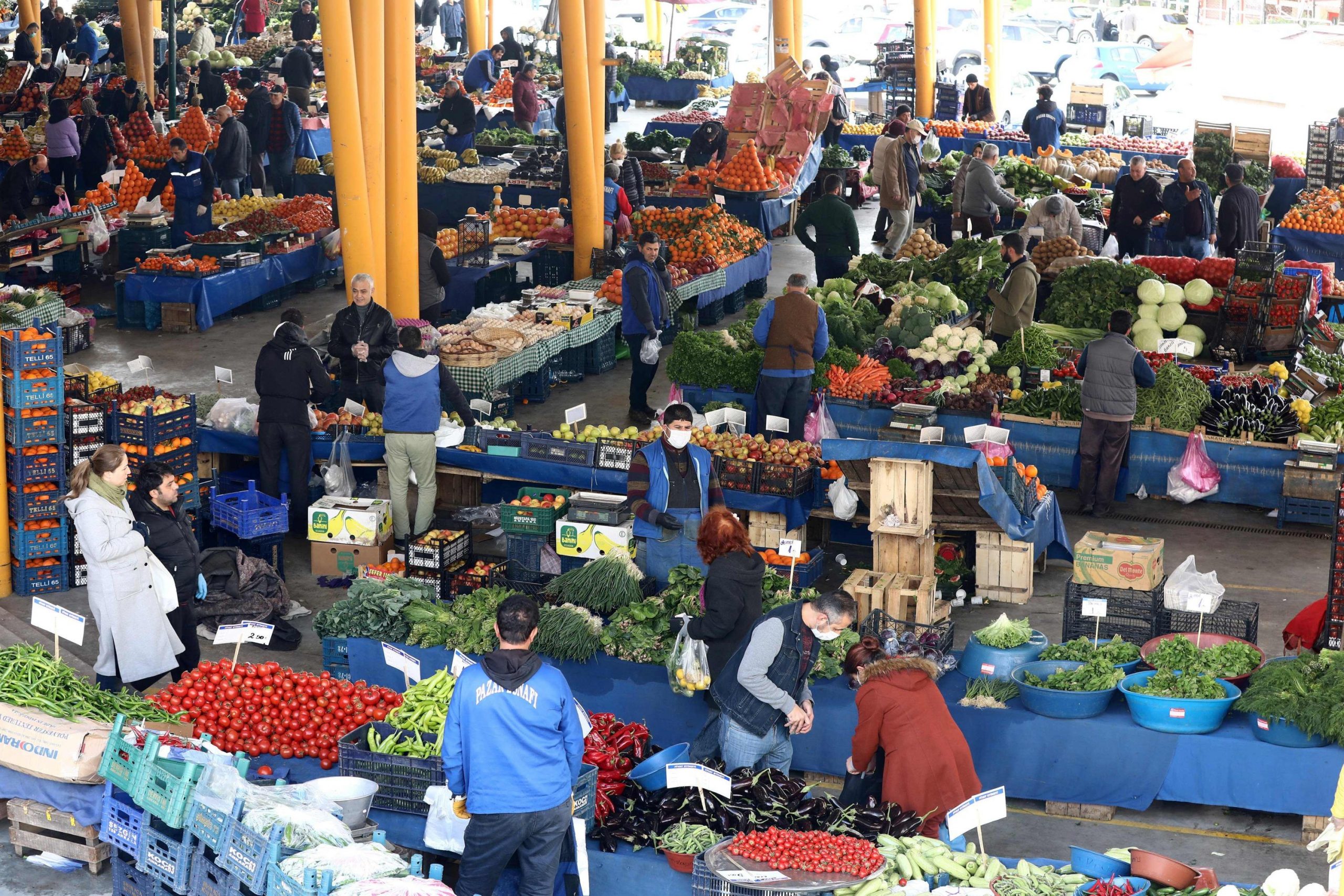The Central Bank of the Republic of Turkey (CBRT) has revised its year-end inflation forecast downward to 7.4% from a previous prediction of 8.2%, the bank’s governor announced Thursday, opening the door to more rate cuts amid the coronavirus pandemic.
Murat Uysal’s remarks came during the Inflation Report 2020-II presentation meeting that was held virtually due to the coronavirus outbreak.
“The inflation is estimated to realize at 7.4% at the end of the year, fall to 5.4% by the end of 2021,” Uysal said. The bank forecast that inflation would stabilize at around 5% in the medium term, the governor added.
The 0.8 percentage point reduction was driven by the downward revision in the projections of the output gap and food inflation, the governor noted.
The forecast is based on the notion that demand will lower inflation and the fall will accelerate as of July, Uysal said. He added that demand will gradually recover in the second half of 2020, with expansionary global policies increasing risk appetite in the second half.
The rate is expected to fluctuate between 5.5% and 9.3% in 2020 and between 3.1% and 7.7% in 2021, Uysal said.
In the first inflation report of the year in January, policymakers at the central bank projected inflation to decline to 8.2% in 2020 and would slide to 5.4% at the end of 2021.
The inflation showed a moderate trend in the first quarter of the year, and the current account balance will have a moderate course for the rest of the year, Uysal said.
He added that economic activity slowed, due in part to trade, as of March and that consumer loans have lost pace in recent months.
The governor said that recent monetary and fiscal measures will contribute to financial stability and post-pandemic recovery by supporting the potential output of the economy.
Stating that the economic recovery is expected to start in the second half of 2020, Uysal said its rate will depend on the course of the normalization process in Turkey as well as the global economy.
“We have had our estimations in a framework where the effects of the coronavirus outbreak on global and domestic volatility and economic activity will gradually weaken in the second half of the year,” Uysal stressed.
The effect of demand conditions on inflation will become more evident with the easing of health measures, and the decline in annual inflation will accelerate as of July, he underlined.
Turkey is almost entirely dependent on imports to meet its energy needs and the recent drop in oil prices helped nudge inflation down to 11.86% in March. Month-on-month, consumer prices rose 0.57% in March.
The decline in inflation allowed the CBRT, which had hiked its key policy rate to 24%, where it stayed until last July, to slash rates by 1,525 basis points since then to boost growth.
The central bank Thursday also revised downward its year-end crude oil price assumption to $32.6 per barrel, up from $60 per barrel in its January report. The speed of the oil and import price increase will be much higher in 2021, the bank added.
Food price inflation was forecast at 9.5%, down from 11% in the last quarterly report.
Inflation was a pressing issue for the economy after it surged to a 15-year high of above 25% in October 2018 but briefly touched single digits last fall thanks largely to a base effect and tight monetary policy. It has since edged up, remaining at around 12% in the past months.
Analysts have said the possibility of reaching single-digit inflation in the second half of the year continues when taking into consideration the central bank’s guidance along with the decline in oil prices.
The government’s year-end inflation target is 8.5% for 2020 as laid out in the government’s New Economic Program (NEP) announced last September.
Over the last decade, annual inflation saw its lowest level at 3.99% in March 2011, while it peaked at 25.24% in October 2018.
The central bank governor also said the bank was holding talks on swaps lines with several central banks but gave no details.
He said that although there was pressure on reserves in the short term, this will ease, and that changes in forex reserves were impacted by the balance of payments.
Responding to a question on the International Monetary Fund (IMF), the governor said no resource or swap negotiation has been started with the fund yet.
The central bank has stepped in to backstop much of Turkey’s financial response to the pandemic, including buying a record TL 33.5 billion ($4.8 billion) of government bonds in secondary markets since the end of March, including TL 21.6 billion from the unemployment fund.
The bank has also provided funding below the policy rate and ramped up its quantitative easing measures by doubling its effective limit on purchases this year to 10% of its total assets.
With the pandemic forcing businesses to furlough or lay off staff, Ankara has tapped the unemployment fund to top up income or pay daily stipends, while small businesses are being given access to fresh loans.
President Recep Tayyip Erdoğan initially announced a TL 100 billion package – the Economic Stability Shield – to support citizens and businesses amid the pandemic on March 18, postponing debt payments and reducing tax burdens on some sectors, including transportation and tourism. Since then, Ankara has gradually widened the measures.
The country’s support for the real sector and lower-income groups amid the pandemic has reached TL 200 billion, Erdoğan said Tuesday.
Treasury and Finance Minister Albayrak has said the government has provided TL 107.4 billion to some 120,000 companies and TL 16.8 billion to support traders.
Financial support has also been given to 4.4 million families, with TL 22.3 billion set aside to meet the basic needs of some 4 million citizens.
Last Updated on Apr 30, 2020 4:19 pm










Discussion about this post